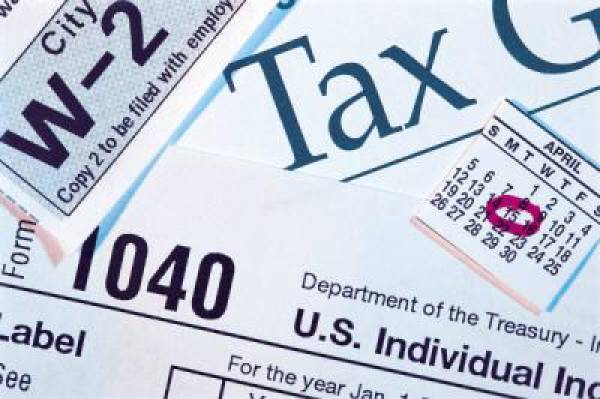An IRS “Sweep Up” Of Online Gambling Operators Forthcoming?

The following article from Tax Analysts’ “Tax Notes Today” provides a follow-up to an issue that was discussed back in 2008 regarding so-called “John Doe” summonses that the government had issued to Paypal.
Experts have suggested to Gambling911.com that, should online poker legislation ultimately pass in the United States, PayPal would be in a position to process payments for the newly licensed Internet poker empires.
The Offshore Merchant Account Initiative is interesting because it has the potential to “sweep up” online gaming operators without directly targeting them, an IRS attorney who closely monitors the online gambling sector tells Gambling911.com.
Also, as the article indicates, the Electronic Payments Initiative, from which the Paypal summonses arose, seems to be an ongoing IRS effort, so perhaps more should be anticipated here, he warns.
The IRS has opened three initiatives intended to uncover undisclosed offshore accounts, according to an official speaking at an American Law Institute-American Bar Association conference on August 20 in Chicago. John McDougal, an attorney in the IRS Office of Associate Chief Counsel (Small-Business/Self-Employed), said the initiatives have already produced John Doe summonses.
The Offshore Merchant Account Initiative uses the data stored by electronic payment processors, which are "usually totally innocent intermediaries who happen to have the information" that is subject to summonses ifinthe United States, McDougal said.
For the electronic payments initiative, John Doe summonses have been sent to Internet payment portal PayPal. Like the electronic account processors, PayPal is "just a lead to the foreign account" from which a user transfers funds to make Internet purchases, McDougal explained.
For the offshore credit card project, the John Doe summonses are sent to credit card companies. In 2000 a federal judge in Miami permitted the IRS to serve American Express and MasterCard with John Doe summonses as part of its effort to crack down on the use of credit and debit cards to access hidden income and charges against offshore trusts.
The IRS has opened three initiatives intended to uncover undisclosed offshore accounts, according to an official speaking at an American Law Institute-American Bar Association conference on August 20 in Chicago. John McDougal, an attorney in the IRS Office of Associate Chief Counsel (Small-Business/Self-Employed), said the initiatives have already produced John Doe summonses.
The Offshore Merchant Account Initiative uses the data stored by electronic payment processors, which are "usually totally innocent intermediaries who happen to have the information" that is subject to summonses ifinthe United States, McDougal said.
Offshore merchant accounts are especially prevalent among e-commerce businesses and members of high-risk industries, such as pornography and gambling, that domestic banks refuse to take as customers. Domestic businesses that already need to seek offshore banking arrangements often avail themselves of the potential for tax evasion, McDougal said.
For the electronic payments initiative, John Doe summonses have been sent to Internet payment portal PayPal. Like the electronic account processors, PayPal is "just a lead to the foreign account" from which a user transfers funds to make Internet purchases, McDougal explained.
For the offshore credit card project, the John Doe summonses are sent to credit card companies. In 2000 a federal judge in Miami permitted the IRS to serve American Express and MasterCard with John Doe summonses as part of its effort to crack down on the use of credit and debit cards to access hidden income and charges against offshore trusts. (For prior coverage, see Doc 2000-28191 or 2000 TNT 212-3.)
Internal Revenue Manual exhibits 5.20.4-11 and 5.20.4-12 provide sample language for use with Summons Form 2039 for PayPal and credit card companies, respectively.
In an earlier conference session, Scott D. Michel of Caplin & Drysdale said the IRS treats offshore accounts as suspicious until a good reason is shown for their existence, despite the many innocent reasons for U.S. taxpayers to hold those accounts.
Swiss bank UBS is slowly releasing the names of 4,450 additional American account holders to the IRS. The Service is also investigating other banks, some in Asia, according to Michel. (For prior coverage, see Doc 2010-17826 or 2010 TNT 154-2.)
Michel said he expects more deferred prosecution agreements like the one reached between the U.S. government and UBS and more John Doe summonses to U.S. branches of foreign banks. The Foreign Account Tax Compliance Act "effectively ends bank secrecy around the world, eventually," Michel said.
In Switzerland the IRS has used the Swiss reliance on treaty procedures to its advantage and is requesting account information for accounts at banks without U.S. branches, Michel said. That category of treaty information exchange will put some U.S. taxpayers at risk of prosecution when they thought they were safe, he added.
Michel said he has been disappointed with the Service's inflexibility on the 20 percent accuracy-related penalty. Although the IRS suggested in a list of frequently asked questions on offshore voluntary disclosures that mitigating circumstances could reduce the size of the penalty, in practice field agents have taken an adversarial approach. (For the IRS FAQ, see Doc 2009-14388 or 2009 TNT 120-8.)
Michel was optimistic that deals may yet be struck, however. "I think this is still in play," he said, indicating that his firm is continuing to negotiate with the IRS.
Michel suggested that the appropriate approach to voluntary disclosures will depend on the client's risk tolerance rather than the law.
In a "noisy disclosure," the taxpayer accepts that there will be penalties but in return receives a closing agreement that guarantees no further sanctions. One unknown is how the IRS will assess civil foreign bank account report penalties, which could be up to 50 percent of the value held in the foreign account. But Michel said that he expects the FBAR penalty to vary between 20 and 50 percent.
A "quiet disclosure" involves filing amended returns over a period of years. It will eventually put the taxpayer in compliance, but without the security of a closing agreement. The IRS has stated that quiet disclosures will not be considered voluntary, but according to Michel, they are unlikely to result in criminal prosecution.
Quiet disclosures are especially appropriate for deceased taxpayers, who cannot fear jail time, Michel said.













